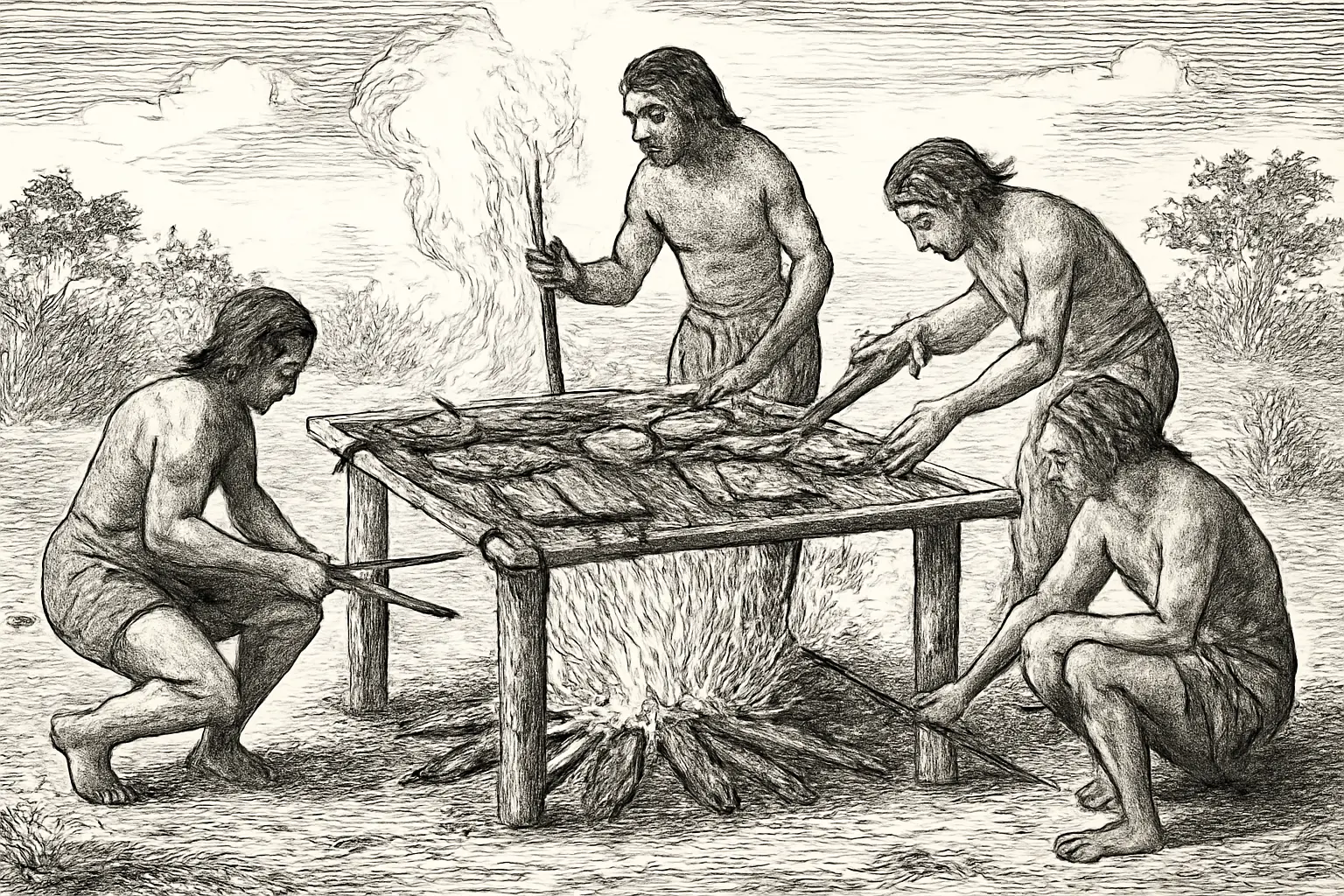Barbecue

Origin in the Caribbean
The word "barbecue" originates from the Caribbean, specifically from the term used by the Taíno and Arawak peoples. It derives from the Arawakan word "barbakoa" or the Taíno word "barabicu," which described a raised wooden framework or structure used for roasting or curing meat over a fire. This cooking method involved placing meat on a gridiron or rack elevated above flames for slow cooking.
Adoption by Spanish Explorers
Spanish explorers encountered this technique during their journeys in the Caribbean and adopted the word into Spanish as "barbacoa." The term was in use by Spanish settlers and appeared in Spanish dictionaries as early as 1526. The concept and word were then introduced to English in the late 17th century. Early English use referred to the framework for grilling meat or fish.
Evolution in Meaning
The sense of "barbecue" as an outdoor feast or social entertainment involving roasted meat dates from the 18th century, and by the early 20th century, the term evolved to refer also to the grill or cooking apparatus itself. The popular abbreviation "BBQ" came into American English usage by the mid-20th century.
Cultural Influences
The word also has related terms such as "boucanier" (French for pirate or meat curer) linked to the French "boucan," a native grill used in the Caribbean, showing how the word traveled through different cultures and languages.
Summary
Overall, barbecue has deep historical roots in the indigenous cultures of the Caribbean and their cooking practices, and its word reflects a rich cultural exchange through Spanish and English adoption.